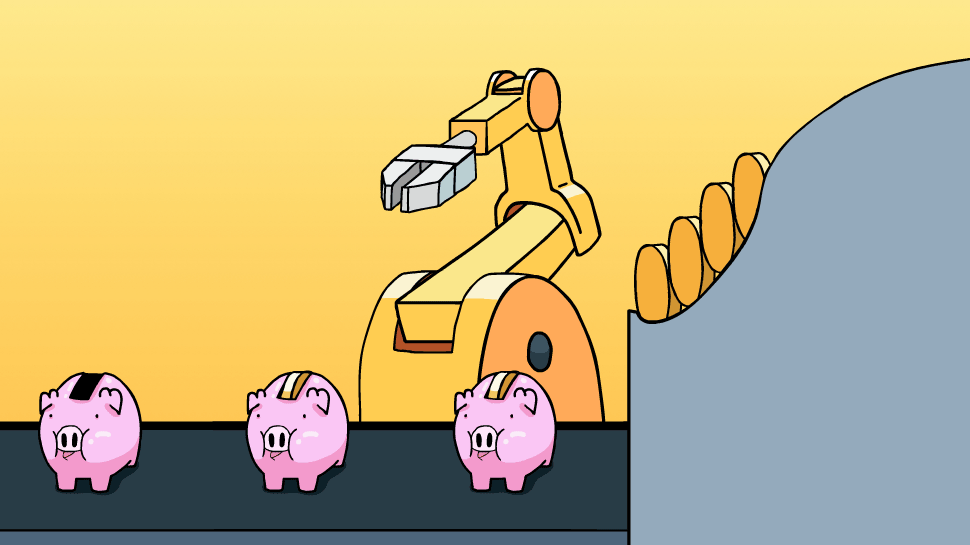Below are some of the best tricks on how to save money
Are you stuck in a financial rut? Do you find yourself always struggling to pay your bills or have little leftover at the end of each month? If so, you’re not alone. Many people find it challenging to manage their money, especially as they transition into adulthood and begin to take on more responsibilities; from rent to food, utilities and more.
But that doesn’t mean it’s impossible. With the right knowledge, habits, and techniques for saving money, anyone can become a pro at budgeting and cutting back expenses.
Here are some millionaire habits that will help you save money like a pro!
Make a budget and stick to it
Before you do anything else, you need to make a budget. For many people, this is the hardest step, but it’s also the most crucial. Without a budget, you can’t plan your money, set goals, or know where your cash is going. Making a budget is not just about spending less — it’s about making the most of what you have so you can save more of it.
When making a budget, the first step is to create a list of all your recurring expenses. This includes things like rent, utilities, insurance, groceries, and transportation (fuel for car owners and taxi/bus fares). Next, add up all your monthly income (monies from friends, family and side gis), and subtract your monthly expenses from your income to get a rough idea of how much money you have left over each month. If you don’t have much left over, don’t panic.
You can start small. Aim to save just a few cedis each month and gradually increase your contributions as your income increases. If you’re having a hard time-saving money and sticking to your budget, try a cash-only diet. By limiting your spending to cash, you’ll be less likely to overspend and fall behind on your budget.
Automate your savings

It’s common for people to set a goal to save money, but then fail to follow through on it. One way to ensure you save consistently is to automate your savings. This means setting up a savings account and having a certain amount of money transferred from your checking to your savings each month.
Automating your savings is one of the best ways to save money consistently. It helps you avoid the temptation to spend your savings during lean months and prevents you from dipping into your savings while under pressure. Plus, when you set up an automatic savings plan, the money goes straight from your checking account to your savings account, so you don’t even see it. This helps prevent you from spending it.
You can do this by setting up a standing order with your bank. Alternatively, you can use the Achieve app to do this for you. This automation works for not just savings, but investment accounts as well.
If you’re struggling to save money, it’s important to identify why. Once you know what’s holding you back, you can work on fixing your money habits. If you have a hard time-saving money, it may be due to a few reasons. For example, you could be living beyond your means and spending more than you have. Or you may be in a high-interest debt cycle and need to focus on paying it off.
Shop in bulk to Save Money

Shopping in bulk is a great way to save money. It is also a great way to get more of the items you love. I recommend shopping in bulk if you are on a tight budget or if you want to save your time and energy by not having to go grocery shopping as often. This also saves on transportation if you have to go the market.
A bag of sachet water at the beginning of the year was around GH¢4. It’s moved up to about GH$8 now. Inflation has soared month on month. This means that buying items in bits would actually cost you more than if you bought multiple things at once at an earlier date.
The key to saving money when buying in bulk is careful planning and preparation. For example, make sure that you have storage space for all of the items that you buy. You should also make sure that your family will actually eat all of the food that you buy so that it doesn’t go bad before it can be eaten.
If you’re a vegetarian, you’ve probably heard that meat is an expensive protein source. But what about beans? They’re actually cheaper per serving than steak. Beans and other legumes can be a great addition to any diet, and they’re much cheaper than meat. You should also buy staples like rice, pasta, and oats in bulk. These foods are inexpensive, healthy, and can be used in a variety of different meals. You can also buy in bulk by shopping at wholesale stores.
Put An End To Unnecessary Shopping
The average person makes 80 decisions about money each day. But are these decisions helping or hurting your financial health? If you’re like most people, you probably make more bad financial decisions than good ones. One of the best ways to start saving money is to put an end to unnecessary shopping.
If you find yourself constantly shopping when you don’t need anything, it may be a sign of stress or anxiety. If so, try to find other ways to cope with your feelings. You might also want to examine your shopping habits and ask yourself if your purchases are really worth it. There’s a chance you may be shopping because it makes you feel good, but most purchases don’t actually make anyone happy in the long run.
Track Your Spending
As humans, we have a tendency to overestimate what we can do in a day and underestimate how long things will take us. When it comes to tracking your spending, it’s important to be as accurate as possible.
You don’t want to fall into the trap of inflating your expenses, because that can lead to inaccurate budgeting. Whatever method you use to track your expenses, be sure to use it consistently. If you switch between different tracking methods, you’ll never get an accurate picture of your spending.
It’s also important to track your spending at both the micro and macro level. That means you should break down your spending by category, as well as look at the bigger picture and evaluate how much you spend each month. If you’re having a hard time managing your money and tracking your expenses, tons of apps and websites can help. I recommend Money Lover (get it on the AppStore or PlayStore).
One of the best ways to curb your spending is by keeping a spending log. Each time you make a purchase, write it down in a log. This will help you identify your money-wasting habits so you can change them and make better decisions in the future.
How to Save Money by Paying with cash
Mobile money and credit cards especially make it easy to shop without “limits”, but they also make it easy to spend more than you can afford. When you use your credit card to make purchases, you’re not paying with cash. This means you don’t feel the full impact of your spending and can easily overspend. If you struggle with impulse spending, consider switching to cash-only purchases. Studies show that people spend less when they pay with cash, because they’re more aware of their spending and less likely to overspend.
For mobile money users, there are transaction charges as well as the controversial e-levy tax that you’ll be paying for each mobile money transaction you make.
You should also pay off your credit card or MoMo debt as quickly as possible. Not only does this help you build your credit score, but it also saves you money. Credit card interest rates are high, and when you’re in debt, you’re essentially paying a lot more for your purchases than you would otherwise.
Make Dining At Home/ Cooking Your Own Food A Priority
Eating out is one of the biggest expenses people have, and it’s one of the easiest ways to overspend on a budget. Experts estimate that the average person spends $2,500 (about GH¢25,000) a year eating out. While eating out occasionally is fine, if you make it a regular habit, you’ll find that it can really add up. If you want to start saving money, make dining at home a priority. It’s cheaper, healthier, and more sustainable than eating out. Plus, it’s much easier to stick to your budget when you eat at home.
Don’t believe us? Even affordable Papaye has increased its prices.
If you’re struggling to save money, make it a priority to start cooking more often. Plus, it’s much easier to stick to your budget when you’re eating at home or taking food to work.





